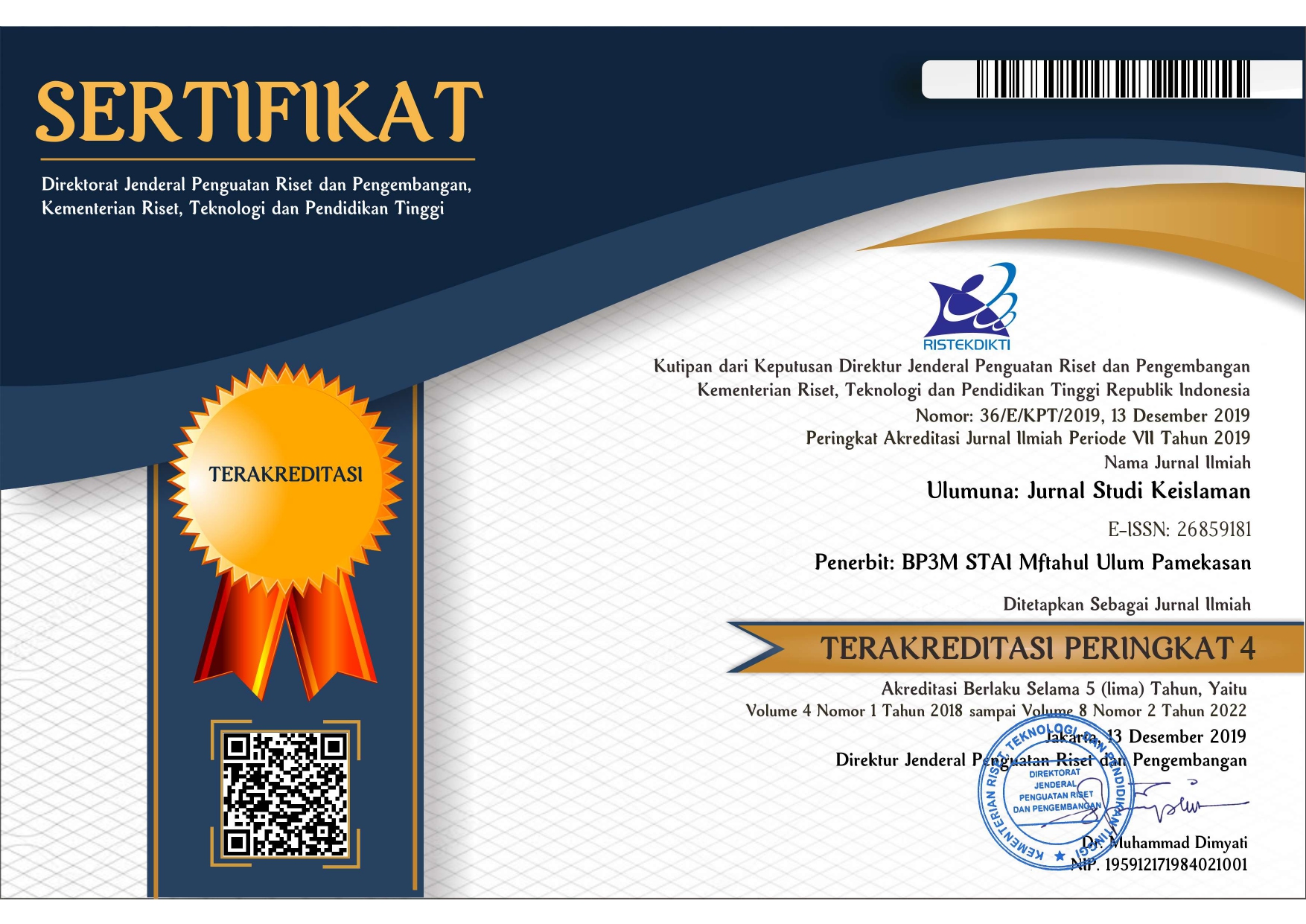Istinbatul Ahkam dalam Fenomena Pernikahan Perempuan Muallaf di Bali
Abstract
A Hindu woman who converts to Islam faces several consequences regarding her social status in the community. One of these consequences is related to her marriage with a Muslim man. In Balinese Hindu belief, a woman who changes her religion in order to marry a Muslim man is required to undergo the mepamit ceremony—a tradition where the daughter formally bids farewell to her ancestors before leaving her home and religion. In this ceremony, the woman’s family often invites the groom’s family to witness the mepamit ritual. Another issue arises during the marriage ceremony itself, particularly the Islamic wedding contract (akad nikah), where the absence of a rightful guardian (wali) for the bride becomes a problem. This description leads to two main research focuses in this article: What is the Islamic legal view of the groom attending the mepamit ceremony? Who has the rightful authority to act as the bride's guardian (wali) in the marriage? This research uses a qualitative approach, applying the analysis model of data reduction, data display, and conclusion drawing. Following the presentation and analysis of the data, the study concludes that: The groom’s presence at the mepamit ceremony is permissible on the condition that he does not participate in the ritual prayers or the drinking of water considered sacred by the bride’s family. A Muslim convert (muallaf) woman cannot be married off by her non-Muslim parents. Her guardian must be a wali hakim, who in this context is an official from the Office of Religious Affairs (KUA). The authority of wali nikah may be transferred to a wali muhakkam in cases where the wali hakim demands illegal fees (bribes), is unavailable in the couple’s area, or the wali muhakkam is a qualified mujtahid (Islamic jurist). Based on these conclusions, the following recommendations are offered: The bride’s family should not compel the groom to participate in the mepamit ritual, especially in acts of worship (ubudiyah). Religious court judges should refrain from engaging in unlawful fees or bribery, which clearly violate the law. The bride and groom should formally assign the marriage guardianship to the wali hakim through proper verbal or written means, in accordance with Islamic legal provisions.Downloads
Published
2025-11-16
How to Cite
Wahyudi, N. (2025). Istinbatul Ahkam dalam Fenomena Pernikahan Perempuan Muallaf di Bali. Ulumuna: Jurnal Studi Keislaman, 11(1), 44–62. Retrieved from https://ejournal.kopertais4.or.id/madura/index.php/ulumuna/article/view/8031
Issue
Section
Articles
License
Copyright (c) 2025 Nur Wahyudi

This work is licensed under a Creative Commons Attribution-ShareAlike 4.0 International License.
Jurnal ini terbuka untuk umun dan bisa digunakan untuk kepentingan ilmiah lainnya






